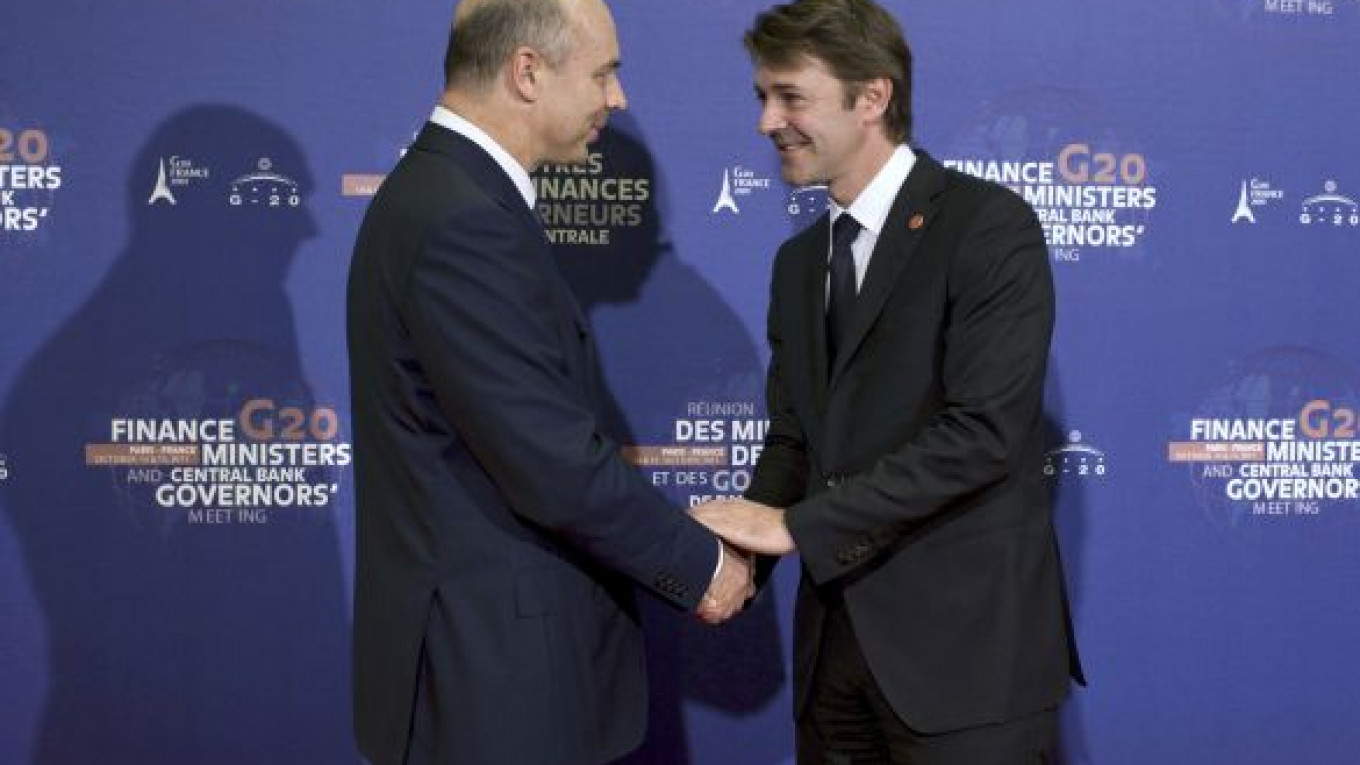PARIS — Despite Russia's willingness to consider the idea of bolstering the International Monetary Fund's capital, a plan put forward by developing countries at the Group of 20 finance meeting in Paris late last week was rejected by the United States and others.
Emerging market powers, which have a new voice in global policymaking through the G20 but still have little ability to spur on any euro-zone action plan, are angry that while EU leaders dither, investors are ditching high-risk assets.
"Our market is suffering from pressures on the European market," Deputy Finance Minister Sergei Storchak said. "We have experienced crazy volatility," he said. "There are no fundamental factors in Russia behind such volatility."
The short-lived push by developing economies at G20 talks to give the IMF more resources hinted at the frustration simmering among emerging powers.
China, Brazil and India all favor bolstering the IMF's capital, G20 sources said, and Mexico's deputy finance minister said more tools and funds should be deployed to curb the contagion spreading from Greece.
One emerging market source said $350 billion could be an appropriate sum to inject into the IMF.
The fact that bigger G20 powers moved to quash the idea even before finance chiefs sat down for their opening dinner gave a hint of the tensions hanging over the G20 talks.
"The atmosphere is complex. There is a sense of urgency, of crisis," Mexican Deputy Finance Minister Gerardo Rodriguez said.
"We are worried about the situation because this lack of a deep-rooted solution to the challenges that have arisen in Europe has provoked this contamination toward other emerging countries, including Mexico," he said.
Japanese Finance Minister Jun Azumi said emerging country G20 ministers feared that the euro crisis would spur further outflows from their economies into safe havens like the yen.
U.S. Treasury Secretary Timothy Geithner said Europe had ample resources to solve its crisis without extra IMF funds.
"We need to remain focused on the Europeans solving this crisis and avoid focusing on noncentral issues like increasing the resources of the IMF. And not everyone agrees," Canadian Finance Minister Jim Flaherty said.
A Message from The Moscow Times:
Dear readers,
We are facing unprecedented challenges. Russia's Prosecutor General's Office has designated The Moscow Times as an "undesirable" organization, criminalizing our work and putting our staff at risk of prosecution. This follows our earlier unjust labeling as a "foreign agent."
These actions are direct attempts to silence independent journalism in Russia. The authorities claim our work "discredits the decisions of the Russian leadership." We see things differently: we strive to provide accurate, unbiased reporting on Russia.
We, the journalists of The Moscow Times, refuse to be silenced. But to continue our work, we need your help.
Your support, no matter how small, makes a world of difference. If you can, please support us monthly starting from just $2. It's quick to set up, and every contribution makes a significant impact.
By supporting The Moscow Times, you're defending open, independent journalism in the face of repression. Thank you for standing with us.
Remind me later.






